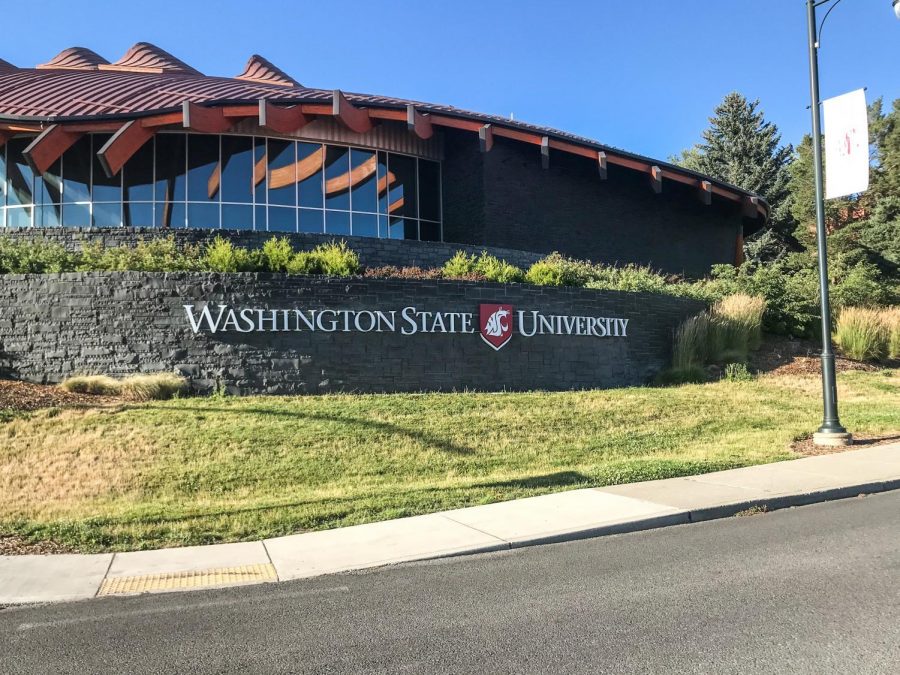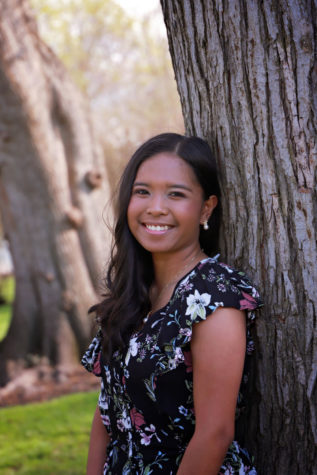OPINION: WSU Board of Regents should prioritize transparency, accessibility
Regents committee meetings don’t allow public comments; livestreaming options changed three days before meetings
September 15, 2021
Editor’s note: On Sept. 16, a day after this column was published, WSU President Kirk Schulz announced that all Board of Regents meetings, inlcuding all committee meetings, will be livestreamed starting in November. The announcement was made during the Board of Regents’ Strategic and Operational Excellence Committee meeting. Originally, only the main Board of Regents meeting and committee of the whole meetings were planned to be livestreamed.
With the transition back to in-person activities, many governing agencies are learning to navigate through — what many people call — “the new normal.”
The pandemic caused many events to occur virtually to help ensure everyone’s health and safety while maintaining transparency and accessibility. This includes meetings, ranging from class sessions to city council events.
WSU’s Board of Regents is undergoing this transition as well. For those who may not know, the board serves as the governing agency for the university. They are responsible for supervising and managing the university as a whole, including making decisions regarding students’ tuition.
The board will commence their 2021-22 meetings this Thursday and Friday in person on the WSU Pullman campus — a sharp contrast from all their virtual meetings this past year. But the board’s return to in-person meetings and, more specifically, the way they will be conducting those meetings create a gap that touches upon issues regarding transparency, accountability and accessibility.
Issue 1: Public can’t comment during Regents committee meetings
Before I dive into this issue, it’s important for everyone to understand how Regents meetings operate.
Regents meetings are typically conducted over a two-day period and are open to the public. Committee meetings are scheduled on the first day. They are “information-only” meetings. This means Regents members deliberate and have in-depth discussions on issues before action is taken on the second day, which is the main Board of Regents meeting.
“There’s no action ever taken in a committee meeting,” said Phil Weiler, WSU vice president for marketing and communications. “It really is just an opportunity to have issues kind of thrashed out before they get taken to the actual Board of Regents meeting on Friday for decisions.”
On Thursday, the first meeting day for the Regents, there will be two committee of the whole meetings and three concurrent committee meetings. The committee of the whole meetings are when all Regents members are present. These meetings cover more pressing topics, such as the university’s finances.
The issue I find in these committee meetings is they do not allow the public and the media to comment or ask questions. Weiler said there is a time allotted after the Board of Regents meeting (which again is held on the second day) for public comment. But that is after the board makes decisions or takes actions.
It seems counterintuitive to have a public comment period after the Board of Regents meeting. Why not incorporate that public comment period during committee meetings when Regents members are deliberating and processing information?
As part of the state’s Open Public Meeting Act, public governing agencies are required to have all their meetings open to the public, said George Erb, Washington Coalition for Open Government board secretary.
The act, however, does not require public comment during those meetings. If an agency allows public comment, they can limit the amount of time a person speaks and the topics the individual may discuss.
“The way that the open government laws are structured in the state is that if the law is silent on it, that doesn’t mean that the local government can’t do it,” Erb said. “It just basically means that they have discretion.”
Clearly, the Board of Regents are not legally required to allow the public to comment. But it is best practice to grant that opportunity to the public for various reasons.
Our country’s government is structured in a way that we, the people, can engage with our government and participate in democracy. Each individual plays a role in holding their government accountable, including governing agencies like the Board of Regents.
If the public cannot comment during those committee meetings, then the Regents members are depriving themselves of valuable insights and questions from the public. And by the public, I mean faculty members, students, staff and the media.
“The university could ask itself, you know, to what extent is transparency worth?” Erb said. “Speaking for the coalition, we think it is worth it because, you know, the public’s informed, people feel like they have access to their government, they don’t feel like they’re having the wool pulled over their eyes.”
Issue 2: Accessibility barriers
Now that the Regents meetings are back in person, the public can attend those meetings face to face. Only some of the meetings will be livestreamed with video.
The committee of the whole meetings, as well as the main Board of Regents meeting, will be livestreamed, recorded and posted on YouTube. The three concurrent meetings will not be recorded, but the public can still join those meetings over the phone.
And it is worth mentioning that the committee of the whole meetings were originally not planned to be livestreamed with video. Weiler said the Board of Regents changed this and revised their agenda on Monday — three days before their committee meetings — due to “concerns from a reporter.”
Yes, the board has granted the public access to those meetings, but the width of that access is limited.
Let me explain.
One, if the public cannot attend those concurrent committee meetings in person, they would have to join over the telephone. That means they can only hear what is going on. The information they are receiving is limited.
Would they be able to see any PowerPoint slides? No. What if the slides have information about budgets and funds?
“Audio information is incomplete … We lose all the visual information,” Erb said. “You can’t see a raised eyebrow over the telephone.”
Two, it can sometimes be difficult to distinguish one person’s voice over another. It is a hassle, especially for the media as we try to attribute information correctly.
Overall, livestream with both video and audio help communicate information better. But Weiler said it would not make much “economical sense” to hire crews and buy equipment to cover those concurrent meetings since they are “information-only” meetings and would cost too much to cover those meetings simultaneously.
He also said there isn’t enough personnel and equipment. Funding transportation would be costly too as the Regents meetings will be held every other month on a different WSU campus.
“The other complicating factor is that … we move them around on purpose so every campus gets a chance to see the Regents in person,” Weiler said. “You’d have to fly equipment and people from city to city to do that.”
I understand Weiler’s, as well as the university’s and Board of Regents’, reasoning. But there are several possible solutions to address those cost, personnel and equipment issues.
If funding the crew and the equipment to livestream those concurrent meetings is too costly, then why not revise the schedule so those meetings are not occurring simultaneously?
Weiler said all committee meetings this past year were treated as committee of the whole meetings, which meant all Regents were present for each one. This was done because everything was virtual and it was not expensive to livestream the meetings back to back. However, this led to Zoom fatigue with about 8-hour Zoom meetings.
To prevent Zoom fatigue, the Regents meeting can be expanded so it occurs over a three-day period. That would ensure there is only one livestream occurring at once, regents members don’t have to spend all day in meetings and still prioritize various methods of meeting accessibility for the public.
This would also address the issue of not having enough personnel and equipment. Aside from that, WSU has the Edward R. Murrow College of Communication. Murrow students and professors would be more than interested to help livestream or broadcast those meetings. It would also help Murrow students get experience.
As far as the issue of funding transportation for personnel and equipment, I think it is hypocritical for the university to pose this as a problem considering the fact that Regents members get to travel and enjoy visits at different campus locations.
Prioritizing transparency, accountability and accessibility
With all of this being said, I highly encourage the Board of Regents to reevaluate the way they will conduct their meetings, especially during this transition to “the new normal.”
How much is transparency worth to WSU? How much accessibility should be granted to the public for meetings as important as the Regents meetings where policies and issues that affect faculty members, students and staff are discussed? To what extent should we hold governing entities like the Board of Regents accountable?
Simple steps, such as allowing public comment during committee meetings and increasing livestream options, can yield results that can benefit WSU as a whole.










